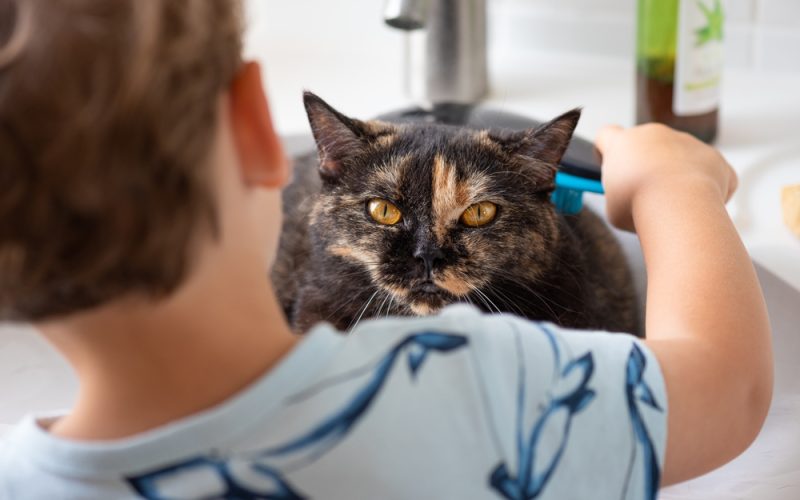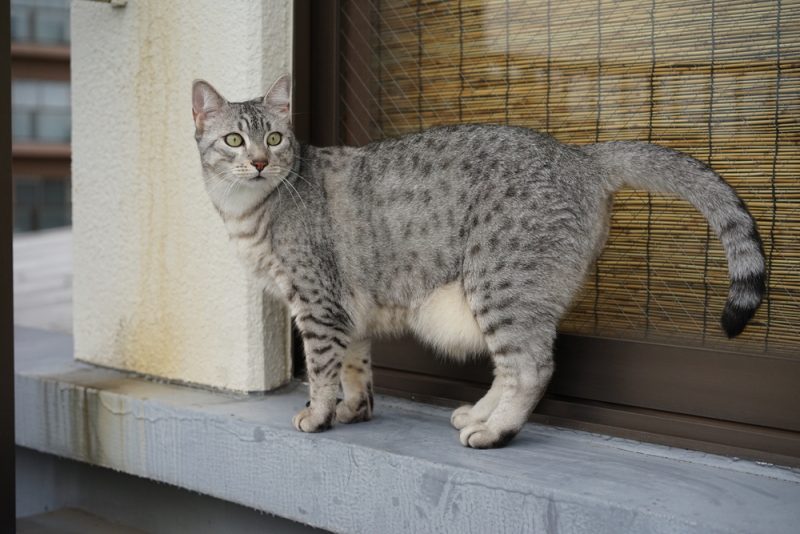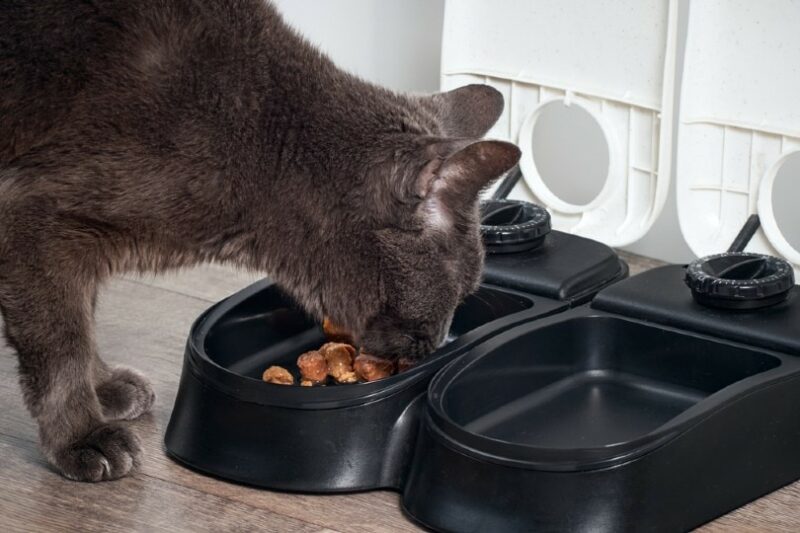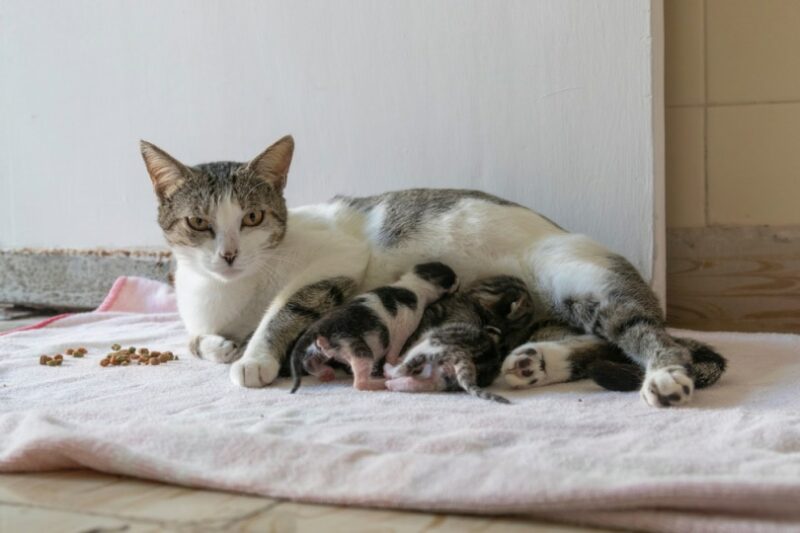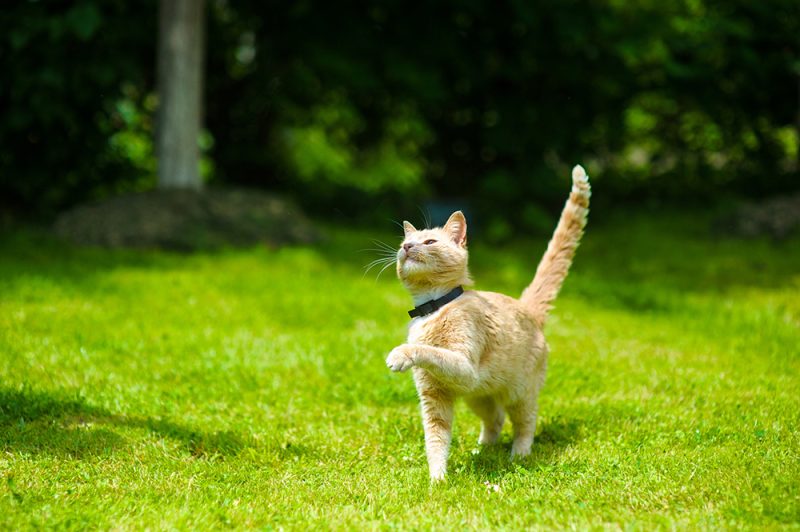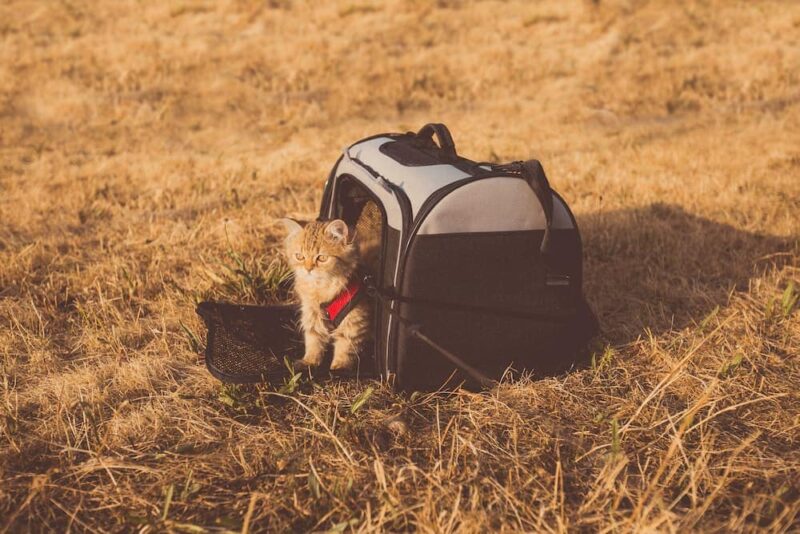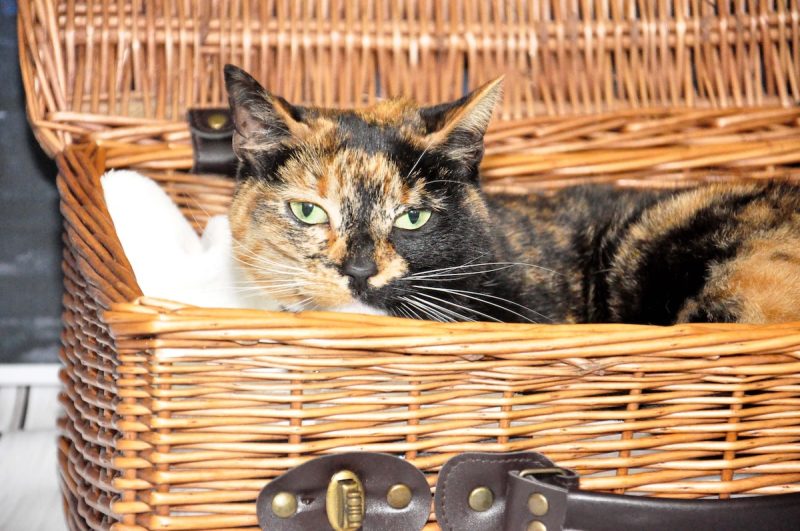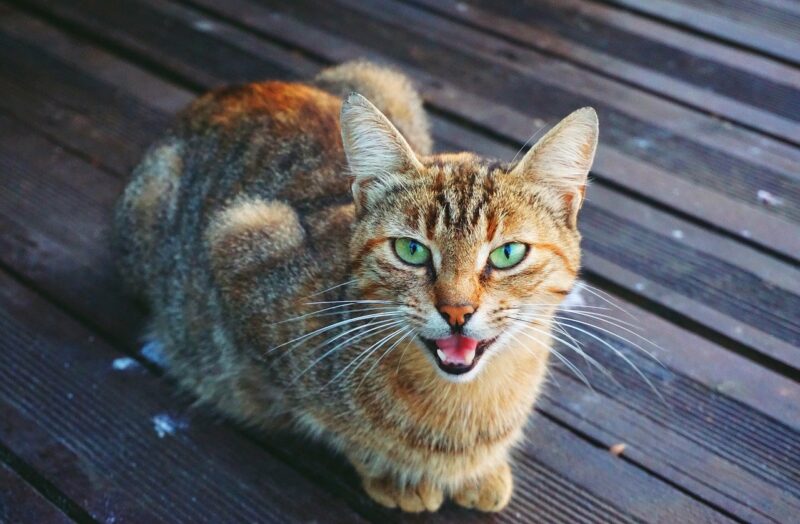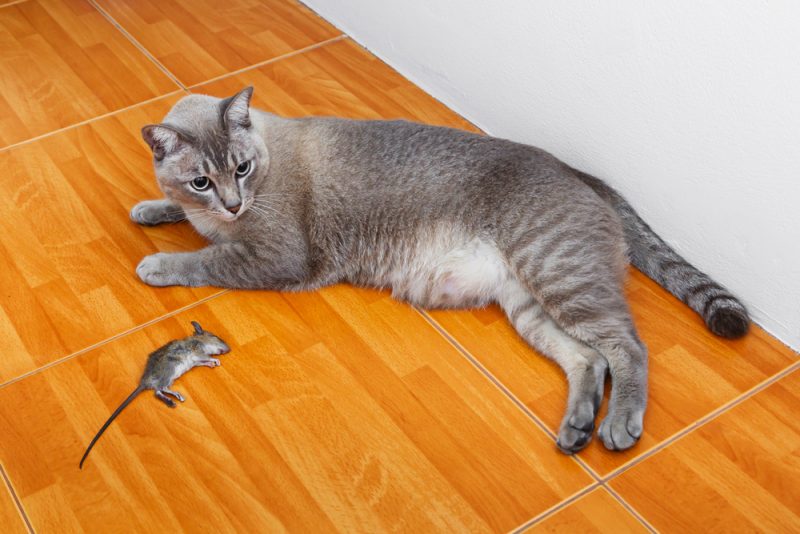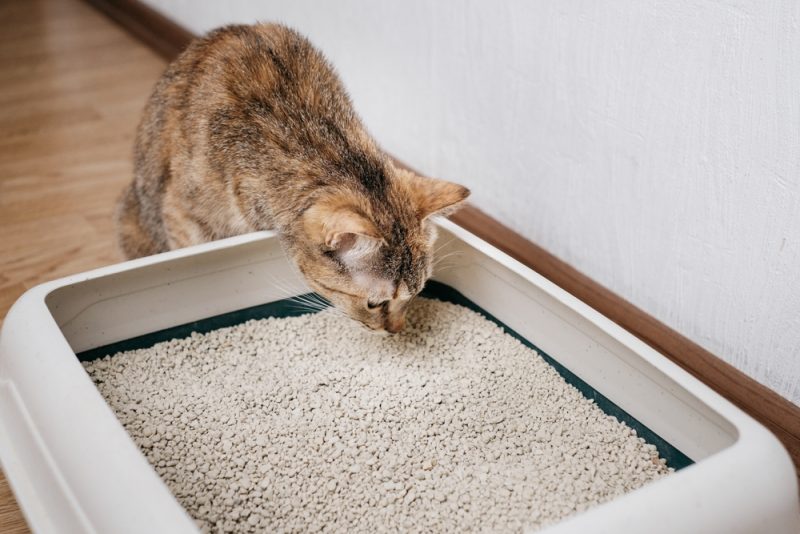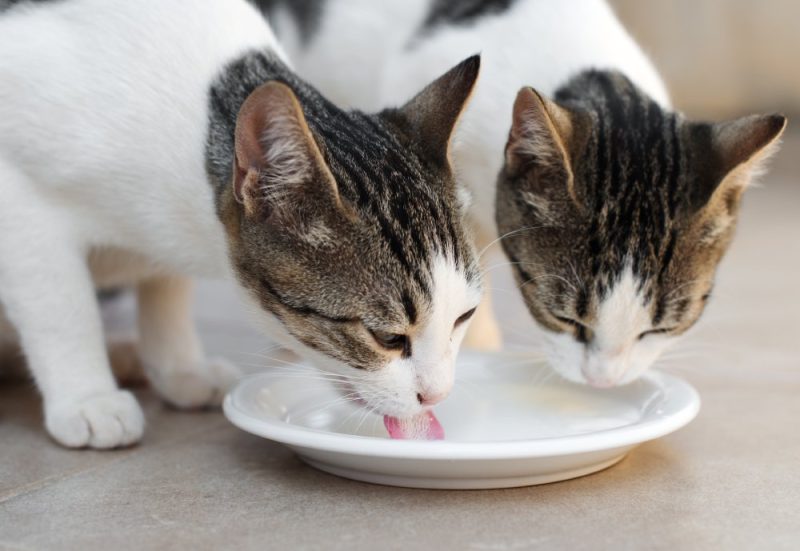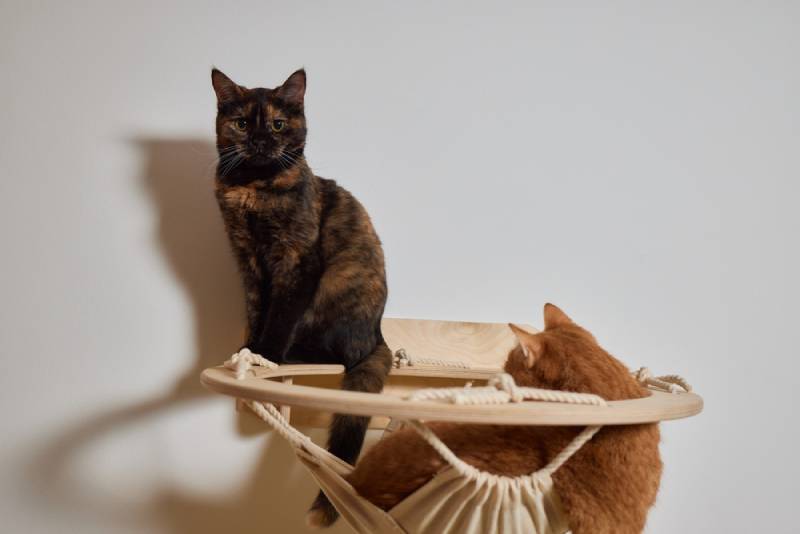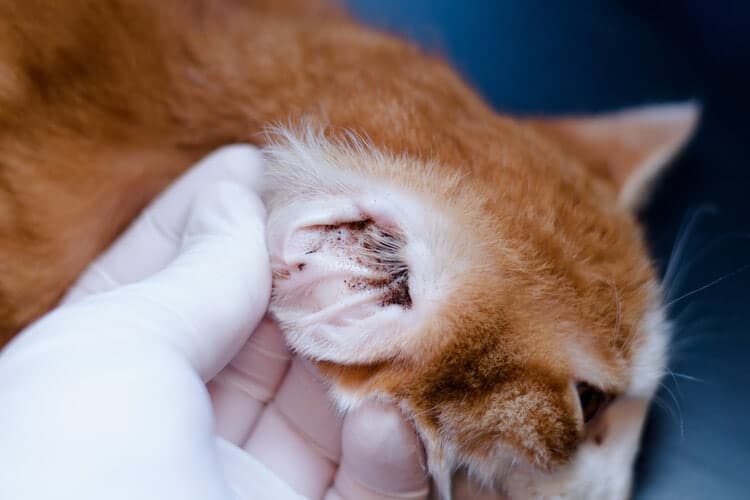If you grew up in a household with pets, you’ve likely experienced the heartbreaking loss of your cherished companion. And with a child of your own, helping them cope with the recent loss of your cat is an essential part of parenthood.
Because this is probably your child’s first exposure to death, finding the right words to present the news to them is just as important as helping your child grieve.

The 10 Tips for Helping a Child Grieve the Loss of a Pet
1. Breaking the News
How you tell your child depends on how your cat died and the age of your child. If your pet has an illness or is old, it might help to prepare your children in advance.
You can try telling your children that your veterinarian has helped your pet, but your pet won’t be getting better. It’s the best thing for your pet—they will no longer be in pain, and the process will be painless and peaceful.
But if the death was quite sudden, tell your children calmly and honestly what happened. Your children’s questions will guide you to how much information you tell them.

2. Talk Honestly with Your Child
This also depends on your child’s age, but don’t use terms such as “put to sleep.” Younger children think quite literally and will potentially equate going to sleep with dying or leaving and never coming back. You should also avoid telling a lie, such as your cat ran away, in order to avoid the death conversation with your children.
This can give your child hope where there is none, and when they find out the truth, they will likely be angry.
3. Talk About How You’re Feeling
We have an instinctive reaction of not allowing our children to see when we are upset. We think we are protecting them, but when there’s a death, it will likely confuse them.
If you’re sad, tell them—it’s okay to cry in front of your children as well. If you’re not upfront about your own grief in front of your children, they might be confused about how you felt about your pet.

4. Don’t Have Any Expectations
Grief involves a number of strong emotions, all of which are relevant and perfectly normal. Anger, emptiness, sadness, loneliness, and guilt can factor in after you’ve lost a pet. So, if your child doesn’t cry but seems angry or acts like everything is normal, help them to understand their feelings are valid.
And if they don’t want to talk about how they are feeling, let them know you’re there for them when they are ready to talk.
5. Answer All Questions
Children always ask questions about everything, so be prepared to answer your kid’s questions about your pet. They might have some tough questions about death and what happens when we die. This is where a book suited for their age can come in handy.
Young children might ask when they’ll see their pet again, particularly if they behave. Keep your answers honest and easy to understand and be patient. And, of course, you can touch on any beliefs you have on the topic of death. Many pet owners refer to the “Rainbow Bridge” when a pet crosses over.
But if your child has no questions, give them their space until they are ready to talk about it and ask their questions.

6. Offer Outlets
Some children might be able to work through some of their grief by drawing and writing about their feelings. However, if your child isn’t sleeping well or seems overly anxious or depressed, you should bring them to your family doctor.
7. Allow the Children to Say Goodbye
If your cat hasn’t died yet, remember to be honest about what is going on. Let your kids know you should all enjoy the time you have left with your pet.
This will also include answering lots of questions and giving your children time to begin the grieving process. This can also ensure that your cat’s death won’t be a huge shock.
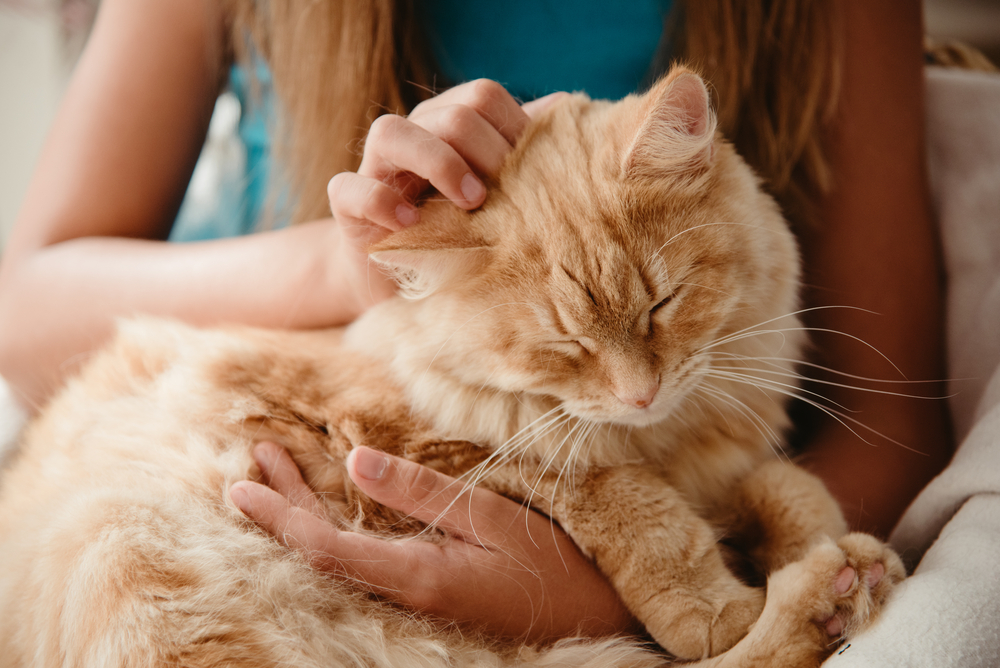
8. Find a Way to Help Them Remember
There are many ways you can memorialize your cat, which can provide closure and a sense of comfort. This is especially true if your child isn’t able to say goodbye. This can be a ceremony where everyone in the family speaks about their memories of your pet. You can use a photo of your cat in a frame or something special to your cat (like their collar or favorite toy).
Have the children help prepare a memory box filled with things associated with your pet. If your cat was euthanized at a clinic, they offer things like a paw print in clay.
Allowing your children options such as these can allow them to feel close to their cat even after they are gone. Go with whatever helps your children—even if they don’t want to participate in any of these ideas.
9. Allow the Grieving Process Time
Grieving is not a short process—quite the opposite. Some children might seem fine after a few days, while others might need months. Some children might keep their feelings bottled up and won’t be ready to talk until enough time has passed.
However short or long it takes, it’s essential not to rush the grieving process.

10. Adopt a New Pet When Everyone Is Ready
Don’t be in a rush to bring a new pet home—you should ensure everyone in the family is ready. Any new pet you bring into your home is not meant to replace your old one. Some families will feel lonely without a little furry companion, which is especially true if your cat was the only pet.
But you need to establish that everyone is ready for a new furry companion before taking this step.

Age-Appropriate Books and Conversations
Toddlers
This is a challenging age as they will not be able to comprehend death fully. You’ll likely find your child repeatedly asking where the cat is. Toddlers will also not necessarily grieve, but this is perfectly normal, so there is nothing for you to worry about.
Books like Something Very Sad Happened were written for toddlers about death. It’s not specifically about pets, but you can still use this book, particularly because pets are loved ones.
Preschool
Younger preschoolers will also have trouble understanding death, while older preschoolers might start to grasp it.
Alfie and the Birthday Surprise by Shirley Hughes is a good book for preschoolers and features a boy helping his neighbor deal with the death of his cat.
When a Pet Dies by Fred Rogers is a beautiful book for young children, although, given that it’s written by Mr. Rogers, it can work for any age.

Middle School
Children in middle school will be able to understand death and what it means. If the scenario allows, it is a good age to involve your children in saying goodbye to their cat.
Memories of You by Erainna Winnett allows children to write, draw, and do other activities to turn this book into a personal, interactive memory book.
The Tenth Good Thing About Barney by Judith Viorst is about a boy who lost his cat Barney and is asked to come up with 10 good things about Barney for his funeral.
Teens
Teens understand death and will likely show a range of emotions. They might even act as if they don’t care.
If your teen is interested, you can opt for nonfiction books such as Healing Your Grieving Heart for Teens by Alan D. Wolfelt, Ph.D., and Saying Goodbye When You Don’t Want To by Martha Bolton.

Conclusion
Losing your loving companion is heartbreaking for the entire family, but talking to your children about it will be daunting and tough for all involved. Sticking to the facts and answering your children’s questions honestly using easy-to-understand terms is essential.
Finding age-appropriate books can help—you can ask your local library for help locating good books for your child. One of the most important things you can do is support your children through the grieving process and understand not everyone will react the same way.
If your children know you’re sad as well and you’re there for them, it can go a long way to help them through their grieving process.
Featured Image Credit: Tommy Larey, Shutterstock
